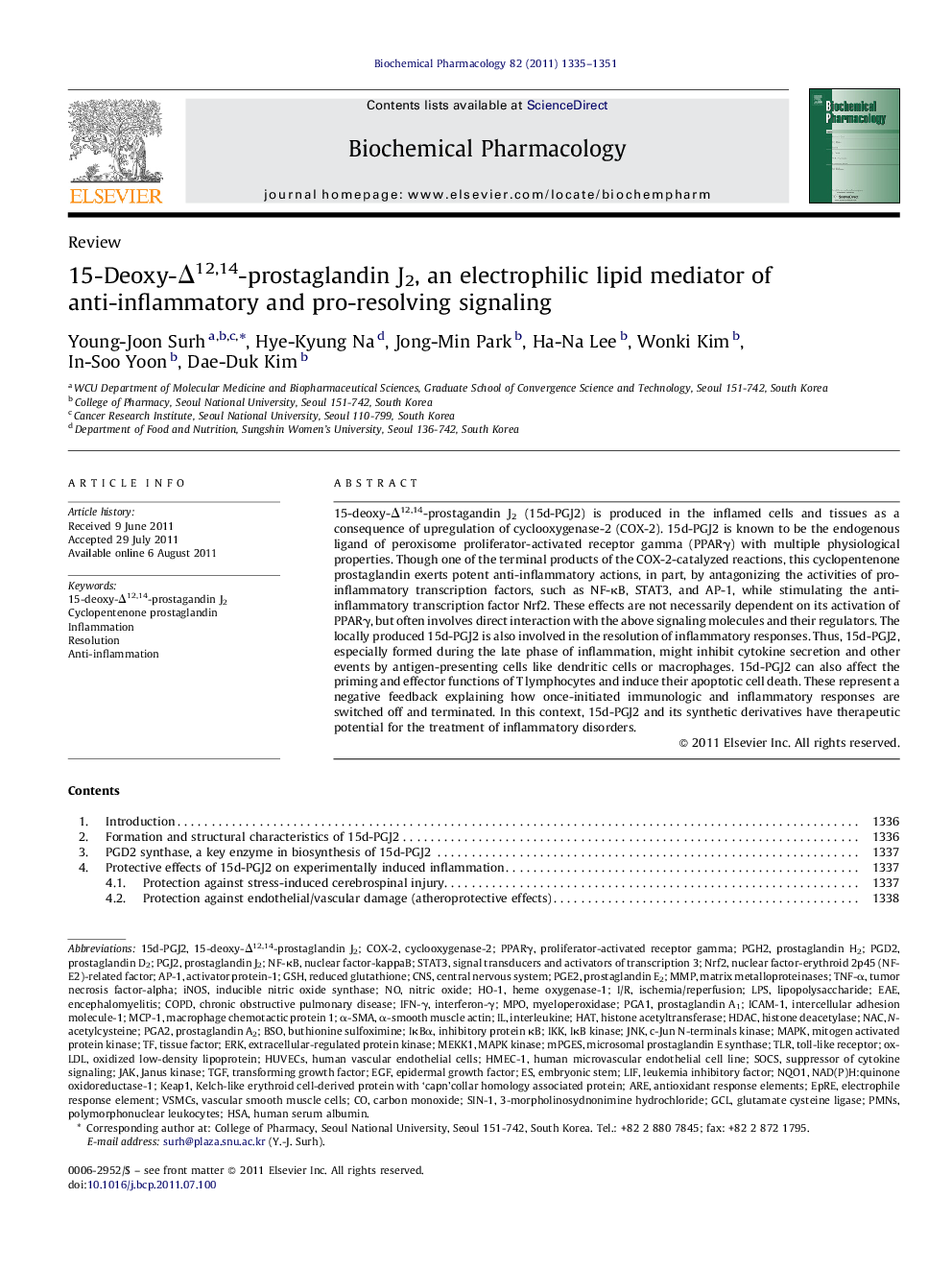| Article ID | Journal | Published Year | Pages | File Type |
|---|---|---|---|---|
| 2513084 | Biochemical Pharmacology | 2011 | 17 Pages |
15-deoxy-Δ12,14-prostagandin J2 (15d-PGJ2) is produced in the inflamed cells and tissues as a consequence of upregulation of cyclooxygenase-2 (COX-2). 15d-PGJ2 is known to be the endogenous ligand of peroxisome proliferator-activated receptor gamma (PPARγ) with multiple physiological properties. Though one of the terminal products of the COX-2-catalyzed reactions, this cyclopentenone prostaglandin exerts potent anti-inflammatory actions, in part, by antagonizing the activities of pro-inflammatory transcription factors, such as NF-κB, STAT3, and AP-1, while stimulating the anti-inflammatory transcription factor Nrf2. These effects are not necessarily dependent on its activation of PPARγ, but often involves direct interaction with the above signaling molecules and their regulators. The locally produced 15d-PGJ2 is also involved in the resolution of inflammatory responses. Thus, 15d-PGJ2, especially formed during the late phase of inflammation, might inhibit cytokine secretion and other events by antigen-presenting cells like dendritic cells or macrophages. 15d-PGJ2 can also affect the priming and effector functions of T lymphocytes and induce their apoptotic cell death. These represent a negative feedback explaining how once-initiated immunologic and inflammatory responses are switched off and terminated. In this context, 15d-PGJ2 and its synthetic derivatives have therapeutic potential for the treatment of inflammatory disorders.
Graphical abstractFigure optionsDownload full-size imageDownload as PowerPoint slide
